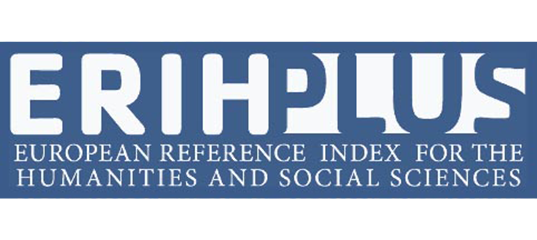Evaluation of a data flow clustering algorithm for GPS trajectory analysis
DOI:
https://doi.org/10.46480/esj.6.2.99Keywords:
Clustering, GPS Trajectories, Algorithms, Data flowAbstract
The large volume of data generated today by various GPS devices makes the analysis of this data a field of current research interest. Clustering algorithms identify patterns in a massive set of data. In the field of transportation, in the case of vehicles circulating through the streets of a city, these algorithms help to identify congestion, common traffic flows, frequent events such as vehicle stops, among others. A GPS trajectory is defined by a set of geographic locations, each of which is represented by its latitude and longitude at an instant in time. There are vehicular GPS trajectories that are nowadays generated by intelligent transportation systems in cities. This work evaluates a data flow clustering algorithm called Dyclee in the processing and analysis of two data sets from the cities of Guayaquil-Ecuador and Rome-Italy. The results obtained from the evaluation of the two data sets using Dyclee allow the identification of vehicular patterns that occur at different time instants, being able to show common speed ranges. In addition, measurements are made to determine the quality of the resulting groups, the results obtained are satisfactory.
Downloads
References
Ferreira, N., Klosowski, J. T., Scheidegger, C. E., & Silva, C. T. (2013). Vector Field k-Means. 32(3).
Gepperth, A., & Hammer, B. (2016). Incremental learning algorithms and applications. ESANN 2016 - 24th European Symposium on Artificial Neural Networks, 357–368.
Juca Maldonado, F., & Burgo Bencomo, O. B. (2016). lended Learning as a model for universities use Moodle. Investigación, Tecnología e Innovación, 8(EE SE-Article), 27–34. https://doi.org/10.53591/iti.v8iEE.140
Madhulatha. (2012). An overview of clustering methods. Intelligent Data Analysis, 11(6), 583–605. https://doi.org/10.3233/ida-2007-11602
Mazimpaka, J. D., & Timpf, S. (2016). Trajectory data mining: A review of methods and applications. Journal of Spatial Information Science, 13(2016), 61–99. https://doi.org/10.5311/josis.2016.13.263
Molina, R., & Hasperué, W. (2018). D3CAS : un Algoritmo de Clustering para el Procesamiento de Flujos de Datos en Spark. 452–461. http://sedici.unlp.edu.ar/bitstream/handle/10915/73223/Documento_completo.pdf-PDFA.pdf?sequence=1&isAllowed=y
Reyes, G., Lanzarini, L., Hasperué, W., & Bariviera, A. F. (2020). GPS trajectory clustering method for decision making on intelligent transportation systems. Journal of Intelligent and Fuzzy Systems, 38(5), 5529–5535. https://doi.org/10.3233/JIFS-179644
Reyes Zambrano, G., & Cedeño Pozo, A. (2018). Algorithm GR-B for the compression of vehicular trajectories. Jurnaly, 39(28).
Suasnabas, L. S., Rubira, A. K., Casilla, I. N., & Schreiber, M. J. (2016). Uso de la tecnología en la educación universitaria ecuatoriana (p. 12).
Tork, H. F. (2012). Spatio-Temporal Clustering Methods Classification. Doctoral Symposium on Informatics Engineering (DSIE’2012), December, 1–12. https://doi.org/10.13140/RG.2.1.3812.7204
Tusa, F., Maza, J., & Briceño, X. (2016). La construcción de una educación del Buen Vivir a partir del estudio de las tecnologías de la comunicación y la información. In Investigación, Tecnología e Innovación (Vol. 8, Issue 8, pp. 97–106). https://doi.org/10.53591/iti.v8i8.141
Vera, J. (2018). ANÁLISIS DE TRAYECTORIAS VEHICULARES GPS PARA EVALUAR SU CALIDAD DE AGRUPAMIENTO UTILIZANDO ALGORITMOS CLUSTERING DE MINERÍA DE DATOS. Universidad de Guayaquil, 83. http://repositorio.ug.edu.ec/bitstream/redug/41488/1/T-ZAMBRANO ZAMBRANO JOSSELYN JAMILE.pdf
Yuan, Y., & Raubal, M. (2014). Measuring similarity of mobile phone user trajectories- a Spatio-temporal Edit Distance method. International Journal of Geographical Information Science, 28(3), 496–520. https://doi.org/10.1080/13658816.2013.854369
Downloads
Published
Issue
Section
License
Authors retain the copyright of their articles and are therefore free to share, copy, distribute, perform, and publicly communicate their work on their personal websites or in institutional repositories after its publication in this journal, provided that full bibliographic information is given to acknowledge its original publication.































